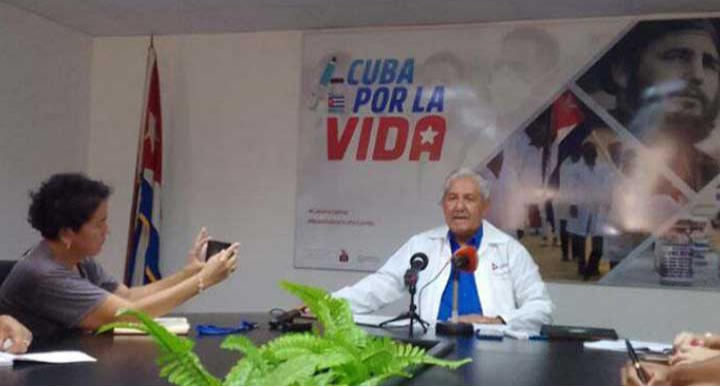
The epidemiological situation in Cuba is complex, according to Dr. Francisco Durán, National Director of Hygiene and Epidemiology.
Havana, Aug. 21 (RHC) Dr. Francisco Durán, National Director of Hygiene and Epidemiology, told the Cuban News Agency that the epidemiological situation in Cuba today is complex due to the co-circulation of several viruses such as influenza, dengue and oropouche.
The latter was detected for the first time in the country in May and is currently circulating in all 15 provinces.
He said that continuous surveillance is being maintained "because although it was considered benign, recent experience has shown that it can cause serious complications".
Durán pointed out that in Brazil serious cases have been reported, including meningitis encephalitis, but on the island, there have been no deaths due to this arbovirolysis, but the health systems remain vigilant, with emphasis on attention to vulnerable groups such as pregnant women to avoid congenital anomalies.
He stressed that as a result of climate change and other social phenomena such as migrations, this virus no longer occurs exclusively in rural areas and now affects the urban population, which leads to an increase in cases.
The National Director of Hygiene and Epidemiology explained that they are observing all the clinical manifestations of the febrile syndrome, and there are cases with up to three relapses in a month, when the symptoms of general malaise and fever return.
The expert affirmed that there is much to be studied about this new disease, so it is vital for the population to go to the doctor immediately in case of any symptoms associated with headaches, joint pains, vomiting, diarrhea and high temperatures, stressing the importance of going to a medical center, since it is necessary to make a proper diagnosis due to the co-circulation of several arboviruses in the region, such as dengue, which is known to develop severe forms.
Durán pointed out that both viruses require drinking plenty of water to avoid dehydration, and warned of the danger of co-infections, such as dengue with oropouche, since the symptoms overlap, making clinical management and preventive decisions difficult.
The current situation calls for more research and understanding of arbovirosis, which is why the eighteenth edition of the International Course on Dengue and Other Arbovirosis is being held at the Pedro Kouri Institute of Tropical Medicine in Havana to train health personnel in its prevention and control. (Source: ACN)

